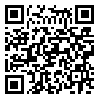دوشنبه 10 آذر 1404
[Archive]
دوره 13، شماره 1 - ( زمستان 1403 )
جلد 13 شماره 1 صفحات 46-33 |
برگشت به فهرست نسخه ها
Download citation:
BibTeX | RIS | EndNote | Medlars | ProCite | Reference Manager | RefWorks
Send citation to:



BibTeX | RIS | EndNote | Medlars | ProCite | Reference Manager | RefWorks
Send citation to:
Ahanian Moghaddam P, Atashpour S H, Golparvar M. Comparing the Effectiveness of Combined Schema Therapy and Mindfulness With Schema Therapy and CBT on Psychological Flexibility. PCP 2025; 13 (1) :33-46
URL: http://jpcp.uswr.ac.ir/article-1-950-fa.html
URL: http://jpcp.uswr.ac.ir/article-1-950-fa.html
Comparing the Effectiveness of Combined Schema Therapy and Mindfulness With Schema Therapy and CBT on Psychological Flexibility. Practice in Clinical Psychology. 1403; 13 (1) :33-46
چکیده: (3723 مشاهده)
Objective: This study aims to compare the effectiveness of integrated schema therapy and mindfulness-based intervention with schema therapy and cognitive behavioral therapy (CBT) on the psychological flexibility of women exhibiting obsessive-compulsive symptoms.
Methods: The study used a quasi-experimental pre-test-post-test design with control and follow-up groups. The research was conducted on women with obsessive disorder who were referred to the Nedaye Agahi and Zehne Pouya Clinic in Tehran City, Iran, during the fall and winter of 2021. A total of 60 participants were selected using a convenience sampling method and were randomly assigned to three intervention groups: An integrated schema therapy and mindfulness-based intervention group, a schema therapy group, a CBT group and one control group. Data were collected using the psychological flexibility questionnaire and the Yale-Brown obsessive-compulsive scale. A repeated measures analysis of variance was conducted using SPSS software.
Results: The results revealed significant differences among all three treatment groups compared to the control. In particular, the integrated interventions of schema therapy and mindfulness, as well as schema therapy and cognitive behavioral therapy, demonstrated a significant effect on psychological flexibility scores (P<0.05) compared to the control group. However, the two-way comparisons for other differences were not significant (P>0.05).
Conclusion: Given the emotional and cognitive challenges faced by patients with obsessive disorders, it is essential to prioritize these aspects in the treatment process.
Methods: The study used a quasi-experimental pre-test-post-test design with control and follow-up groups. The research was conducted on women with obsessive disorder who were referred to the Nedaye Agahi and Zehne Pouya Clinic in Tehran City, Iran, during the fall and winter of 2021. A total of 60 participants were selected using a convenience sampling method and were randomly assigned to three intervention groups: An integrated schema therapy and mindfulness-based intervention group, a schema therapy group, a CBT group and one control group. Data were collected using the psychological flexibility questionnaire and the Yale-Brown obsessive-compulsive scale. A repeated measures analysis of variance was conducted using SPSS software.
Results: The results revealed significant differences among all three treatment groups compared to the control. In particular, the integrated interventions of schema therapy and mindfulness, as well as schema therapy and cognitive behavioral therapy, demonstrated a significant effect on psychological flexibility scores (P<0.05) compared to the control group. However, the two-way comparisons for other differences were not significant (P>0.05).
Conclusion: Given the emotional and cognitive challenges faced by patients with obsessive disorders, it is essential to prioritize these aspects in the treatment process.
نوع مطالعه: پژوهشي |
موضوع مقاله:
رويكرد شناختي رفتاري
دریافت: 1403/5/26 | پذیرش: 1403/8/20 | انتشار: 1403/10/12
دریافت: 1403/5/26 | پذیرش: 1403/8/20 | انتشار: 1403/10/12
| بازنشر اطلاعات | |
 |
این مقاله تحت شرایط Creative Commons Attribution-NonCommercial 4.0 International License قابل بازنشر است. |



